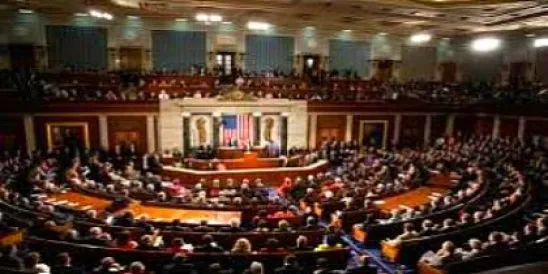As the clock ticks down on Congress’ 2011 session and lawmakers look to wrap up outstanding FY 2012 appropriations bills, leaders in both the House of Representatives and the Senate continue to look for a path forward on priority legislation to extend unemployment benefits, renew the expiring Social Security payroll tax cut and prevent a steep cut in Medicare physician reimbursements as part of a large year-end “extenders” package.
House Republicans released their extenders package, HR 3630, late last week and are working to build support for the measure, with a vote expected early this week. This 369-page legislation would reduce Medicare payments to hospitals by more than $17 billion in order to finance other of the bill’s provisions. Highlights of the health-related provisions are set forth below and a more detailed summary of the health-related provisions can be found here.
Should HR 3630 pass the House, it is expected to be soundly rejected in the Senate. Further, President Obama has already indicated his displeasure with certain of the bill’s provisions. As such, we believe that there are two options for an extenders package to make its way to the President’s desk for a signature: (1) House and Senate leaders will need to have an earnest negotiation to agree on a compromise that can pass muster in a Republican-led House, can garner 60 votes in the Democratically-controlled Senate and can avoid the veto pen of President Obama, or (2) the Senate will approve its own extenders package in the nature of a substitute to the House bill, which the House would have little choice but to accept.
Highlights of some of the health-related provisions are as follows:
Extenders and Other Changes
- The bill heads off a 27.4 percent cut in Medicare physician payments, and provides that for CYs 2012 and 2013, physician payments would increase 1 percent in each year. The Congressional Budget Office (CBO) scores this provision as costing $38.9 billion over 10 years.
- The bill would extend several expiring Medicare ambulance add-on payments, including a 2 percent adjustment for urban ground ambulance services, a 3 percent adjustment for rural ground ambulance services and the 22.6 percent increase for ambulance payments for trips originating in “super rural areas,” through December 31, 2012,. CBO scored this provision at $0.1 billion over 10 years.
- The bill would extend with modifications a program that provides an exceptions process to outpatient therapy caps through December 31, 2013. CBO scored this provision at $1.7 billion over 10 years.
- The bill would extend the physician fee schedule's work relative value units (RVU) geographic floor through December 31, 2012. CBO scored this provision at $0.5 billion over 10 years.
- The bill would re-open physician-hospital ownership restrictions imposed under the Affordable Care Act (ACA) to allow physician-owned hospitals that were under construction, but did not have Medicare provider numbers as of December 31, 2010, to open and operate and qualify for grandfather protection. The bill also would make it significantly easier for hospitals that were grandfathered under the ACA provisions to expand capacity (presently, grandfathered hospitals are allowed to expand bed and OR capacity only if they meet very limited criteria). CBO scored this provision at $0.3 billion over 10 years.
Offsets
The bill utilizes a number of offsets, including several that come directly from hospital payments:
- Reducing hospital outpatient prospective payment system (HOPPS) facility fee payments to hospitals for evaluation and management (E/M) services to be equal to the Medicare payment for the same service when furnished in a physician office. CBO estimates that this provision saves $6.8 billion over 10 years.
- Reducing the reimbursement hospitals and other providers can receive for bad debts from 70 percent to 55 percent, phased in over 3 years. CBO estimates that this provision saves $10.6 billion over 10 years. Of note, the President had proposed that the percentage be reduced to 25 percent.
- Rebasing Medicaid disproportionate share hospital (DSH) payments. CBO estimates that this provision saves $4.1 billion over 10 years.
- Increase Medicare Part B and D premiums for high-income individuals by 15 percent, and increase the number of individuals considered to be high-income by lowering brackets from $85,000 for individuals to $80,000, and from $170,000 for couples to $160,000. CBO estimates that this provision saves $31 billion over 10 years.
- Reducing by $8 billion the Prevention and Public Health Fund created in the ACA.
Omitted Provisions
The bill is also noteworthy for what it does not include, including:
- Sole community hospital and small rural hospital hold harmless or “TOPS” protections under the outpatient PPS, which will expire December 31, 2011.
- Section 508 wage index reclassifications, which expired September 30, 2011.
- Physician pathology technical component payments that allow independent laboratories to receive payments from Medicare for the technical component of pathology services performed for a hospital patient.
- Reasonable cost payments for clinical laboratories in low density population areas, which expires July 2012.
- The Medicare-dependent hospital designation program, which expires September 30, 2012.
- Low-volume hospital payment adjustments, which expires September 30, 2012.





 />i
/>i

